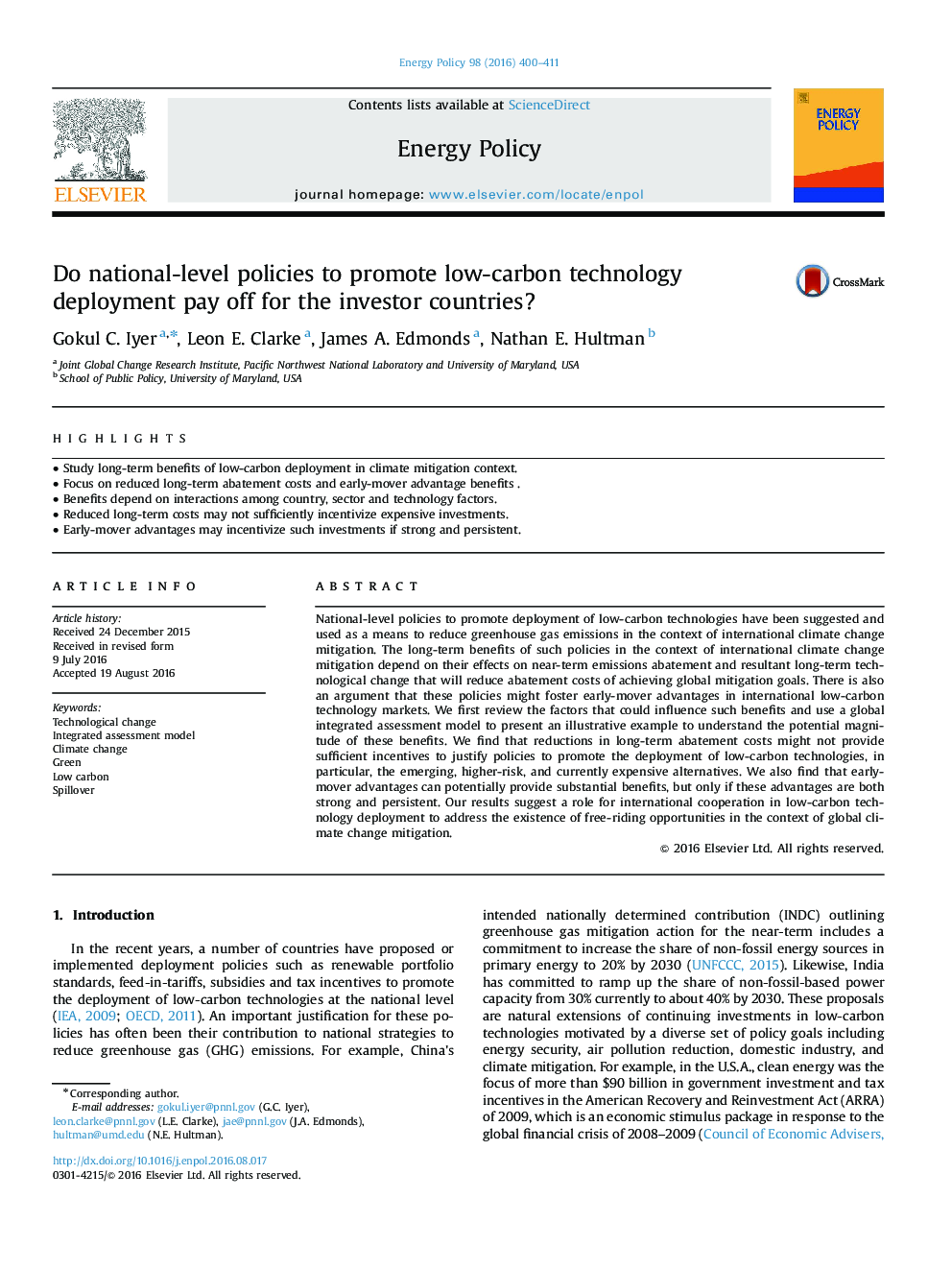| Article ID | Journal | Published Year | Pages | File Type |
|---|---|---|---|---|
| 7398636 | Energy Policy | 2016 | 12 Pages |
Abstract
National-level policies to promote deployment of low-carbon technologies have been suggested and used as a means to reduce greenhouse gas emissions in the context of international climate change mitigation. The long-term benefits of such policies in the context of international climate change mitigation depend on their effects on near-term emissions abatement and resultant long-term technological change that will reduce abatement costs of achieving global mitigation goals. There is also an argument that these policies might foster early-mover advantages in international low-carbon technology markets. We first review the factors that could influence such benefits and use a global integrated assessment model to present an illustrative example to understand the potential magnitude of these benefits. We find that reductions in long-term abatement costs might not provide sufficient incentives to justify policies to promote the deployment of low-carbon technologies, in particular, the emerging, higher-risk, and currently expensive alternatives. We also find that early-mover advantages can potentially provide substantial benefits, but only if these advantages are both strong and persistent. Our results suggest a role for international cooperation in low-carbon technology deployment to address the existence of free-riding opportunities in the context of global climate change mitigation.
Related Topics
Physical Sciences and Engineering
Energy
Energy Engineering and Power Technology
Authors
Gokul C. Iyer, Leon E. Clarke, James A. Edmonds, Nathan E. Hultman,
